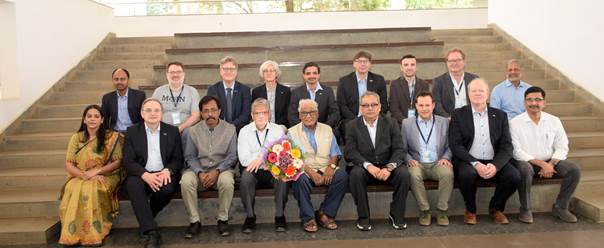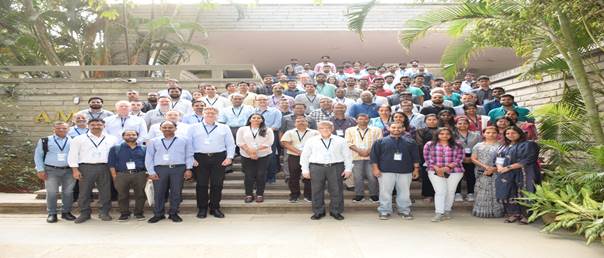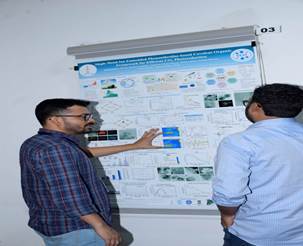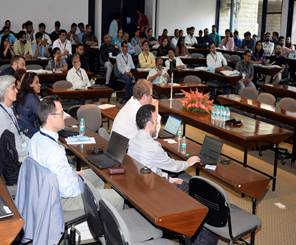Big boost for researchers: India may extend existing partnership on Advanced Synchrotron Facilities at German Research Centre for better accuracy
Ministry of Science & Technology
Indian scientists mulled on possibilities of extending existing partnering on advanced synchrotron facilities that can measure individual objects on the smallest scales, record the structure, energy states and functions of advanced materials and study the snapshots of the important in-situ reaction relevant to energy and environment at a bilateral steering committee meeting.
A high-level delegation from Deutsches Elektronen-Synchrotron (DESY), a renowned German research centre that visited the Jawaharlal Nehru Centre for Advanced Scientific Research (JNCASR), an autonomous institute of Department of Science and Technology, in Bangalore on 12-14 March 2024 deliberated on the progress of ongoing collaboration between Indian scientists and DESY on synchrotron X-ray experiments, and discussed possibility of partnering in the experiments in PETRA IV and free electron laser, which will be an advanced research infrastructure with more accuracy.

This collaborative effort was discussed as an expansion of a strategic partnership between India and DESY in nano and advanced materials sciences extending the India-German cooperation initiated in 2011 by Prof. C.N.R. Rao – the then Principal Scientific Advisor to the Government of India. The existing partnership has since enabled more than 1000 Indian researchers from 60 institutes to use the synchrotron radiation source PETRA III at DESY for their research in advanced materials and nanoscience.
The collaboration has also resulted in more than 340 scientific publications with an average impact factor of 7, covering topics such as novel quantum materials, advanced materials for energy and clean environment and semiconductors.

The bilateral steering committee meeting, held on the first day of a user workshop outreach programme at JNCASR, discussed the possibility of extending the current collaboration on Petra III and partnering in the experiments in PETRA IV and free electron laser, which will be an advanced research infrastructure with more accuracy and brilliance of the beamline.
PETRA IV will allow the measurement of individual objects on the smallest scales and record the structure, energy states and functions of advanced materials and study the snapshots of the important in-situ reaction relevant to energy and environment.


The scientific workshop, which also took place during the DESY visit, was attended by about 100 participants from Indian universities, research institutes, and industry experts like Tata Steel, and reported on new research results and discussed the future scientific opportunities with DESY and Germany. The cooperation is in line with the strategic partnership of the two nations, which are celebrating the 50th anniversary of Indo-German science and technology cooperation this year.
****
PK/PK/PSM